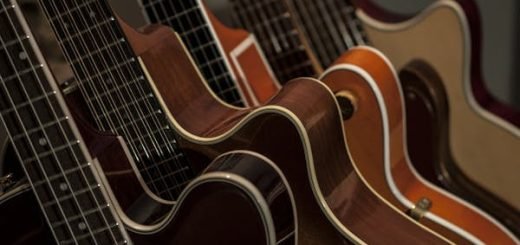Essential Tips for Maintaining and Caring Acoustic Guitar
Essential Tips for Maintaining and Caring Acoustic Guitar
How to Properly Maintaining and Caring Your Acoustic Guitar
Introduction
Playing the is a beautiful and rewarding experience, but to keep your acoustic guitar sounding its best, proper maintenance is key. Whether you’re a beginner or a seasoned player, taking care of your instrument is essential for longevity and optimal performance. In this guide, we’ll walk you through some essential tips on how to properly maintain and care for your acoustic guitar.
Cleaning and Polishing
Keeping your guitar clean is crucial to maintain its appearance and playability. Here are some simple steps to follow:
Cleaning the Body and Fingerboard
- Use a soft, dry cloth to wipe down the body of the guitar after each use to remove dust and fingerprints.
- For stubborn dirt or grime, lightly dampen the cloth with water or a specialized guitar polish.
- Avoid using household cleaners or abrasive chemicals as they may damage the finish of the guitar.
- Clean the fingerboard with a damp cloth to remove any buildup of dirt or sweat from your fingers.
Polishing the Finish
- Use a high-quality guitar polish to maintain the shine of your guitar’s finish.
- Apply a small amount of polish to a soft cloth and gently rub it in a circular motion on the body of the guitar.
- Be sure to buff the guitar with a clean, dry cloth to remove any excess polish and achieve a gleaming finish.
String Care and Maintenance
The strings of your acoustic guitar are essential for producing the sweet sounds you love. Here’s how to care for them properly:
Regularly Clean and Replace Strings
- Wipe down the strings with a soft cloth after each use to remove oils and dirt that can cause them to wear out faster.
- Consider changing your strings every few months, depending on how often you play and the type of strings you use.
- Replace individual strings as needed, especially if they show signs of wear or corrosion.
Preventing Rust and Corrosion
- After playing, wipe down the strings with a dry cloth to remove moisture and prevent rust.
- Use a string cleaner or conditioning oil to protect the strings from corrosion and extend their lifespan.
- Store your guitar in a dry place away from humidity to prevent rust and other damage to the strings.
Humidity and Temperature Control
Maintaining the proper humidity and temperature levels is crucial for the health of your acoustic guitar:
Use a Humidifier
- Invest in a guitar humidifier to maintain the optimal humidity level, especially during dry winter months.
- Place the humidifier in the guitar case to prevent the wood from drying out and cracking.
- Monitor the humidity levels regularly and adjust the humidifier as needed to keep the guitar in top condition.
Avoid Extreme Temperatures
- Keep your guitar away from direct sunlight, heaters, or air conditioning vents to prevent temperature fluctuations.
- Extreme heat or cold can damage the wood and affect the tone and playability of the guitar.
- Store your guitar in a temperature-controlled environment to ensure its longevity.
Storage and Protection
Proper storage and protection are essential to keep your acoustic guitar safe and sound:
Using a Guitar Case
- Invest in a high-quality guitar case to protect your instrument from dust, moisture, and physical damage.
- Choose a hard-shell case for extra durability and shock absorption.
- Keep the guitar in its case when not in use to prevent accidents or mishandling.
Regular Inspections
- Check for any signs of damage or wear on the guitar, such as cracks, loose tuning pegs, or warped neck.
- Inspect the frets, nut, and bridge for any sharp edges that may affect playability.
- If you notice any issues, take your guitar to a professional luthier for repairs and adjustments.
Proper maintenance and care are essential for keeping your acoustic guitar in top condition and ensuring it sounds its best for years to come. By following these tips and incorporating regular maintenance into your routine, you’ll enjoy playing your guitar and making beautiful music for a long time. Remember, a well-maintained guitar is a happy guitar!


